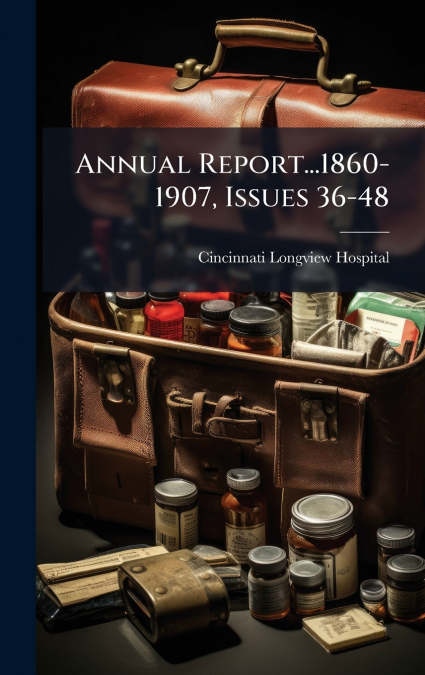
Cincinnati Longview Hospital
This collection comprises annual reports from the Cincinnati Longview Hospital, spanning the years 1860 to 1907. Documenting the operations and developments of a major mental health institution during a transformative period in American history, these reports offer a unique insight into the evolution of psychiatric care, hospital administration, and societal attitudes toward mental illness. The reports detail patient statistics, treatment methodologies, financial matters, and infrastructural improvements at the Longview Asylum, later known as the Cincinnati Longview Hospital. As a primary source for understanding the history of mental health care in the United States, this compilation is invaluable for researchers and historians interested in medical history, social welfare, and institutional development in the 19th and early 20th centuries. These reports serve as a critical resource for understanding the historical context of mental healthcare and the challenges faced by both patients and practitioners during this era.This work has been selected by scholars as being culturally important, and is part of the knowledge base of civilization as we know it. This work was reproduced from the original artifact, and remains as true to the original work as possible. Therefore, you will see the original copyright references, library stamps (as most of these works have been housed in our most important libraries around the world), and other notations in the work.This work is in the public domain in the United States of America, and possibly other nations. Within the United States, you may freely copy and distribute this work, as no entity (individual or corporate) has a copyright on the body of the work.As a reproduction of a historical artifact, this work may contain missing or blurred pages, poor pictures, errant marks, etc. Scholars believe, and we concur, that this work is important enough to be preserved, reproduced, and made generally available to the public. We appreciate your support of the preservation process, and thank you for being an important part of keeping this knowledge alive and relevant.